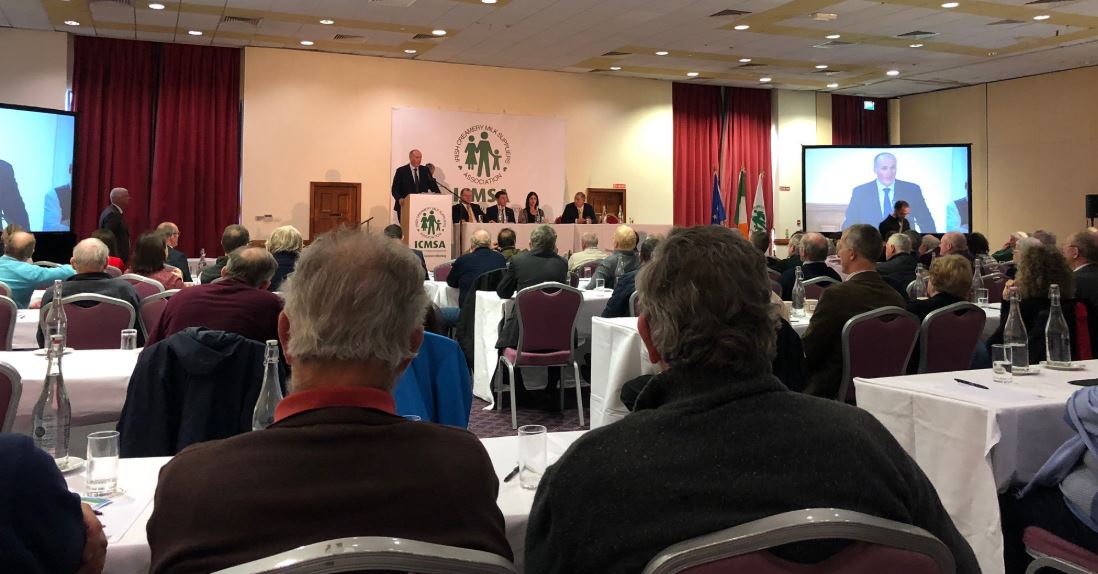Pat McCormack, the president of the Irish Creamery Milk Suppliers’ Association (ICMSA), has criticised the “anti-farm agenda”, which he says has angered his organisation’s members more than anything else.
“If I was asked what has annoyed our members most over the last year, I would have to say it’s the almost non-stop farmer-bashing engaged in by our general media and by some politicians,” McCormack said, during his speech at the association’s AGM today, Friday, November 29.
“People have very short memories…a few short years ago when the economy crashed and the boom time industries were wiped out, it was to agriculture and the food sector that the Government turned,” he added.
The economy was painstakingly rebuilt on our farms and our dairy and beef exports till enough strength was gathered to begin again…[but] as the economy regained speed, it seems also to have regained the same disdain for farming and food.
“At this stage, much of our Dublin-based media, and some politicians, would appear to support effectively closing the gate on Irish agriculture and moving towards some hazy importation of food from regions with very questionable standards of food production – and even more questionable standards of environmental care,” McCormack said.
‘Alternative diets’
McCormack also addressed the issue of “alternative diets”.
“We have mysterious NGOs pushing this agenda very hard, with obviously significant funding, but no transparency around where this funding comes from. Nobody seems that interested in finding out either,” he claimed.
He reserved significant criticism for RTÉ, saying its coverage and reportage over Climate Change Week was “unbalanced and over-the-top”.
“If RTÉ or other media organisations are going to give dietary advice, then it is only reasonable to ask that those giving the advice are appropriately qualified, and base their comments on science,” he added.
Food price
Cheap food policy was a significant topic of conversation at today’s AGM, with McCormack arguing: “Put simply, the consumer is not paying enough for quality food.”
“They are underpaying for the highest quality food and they have been for decades. As a farmer, we are receiving the same price we received 30 years ago which, given the increase in input costs and regulation, is just untenable,” he insisted.
The cheap food policy was only cheap for the consumers because we – the farmers – were carrying them. The cheap food policy was very expensive indeed for us.
“Every single bill we had has quadrupled at least…Some people are in for a very rude awakening when they realise what the real cost of food is – the cost we’ve been paying for producing it for years now,” McCormack argued.
